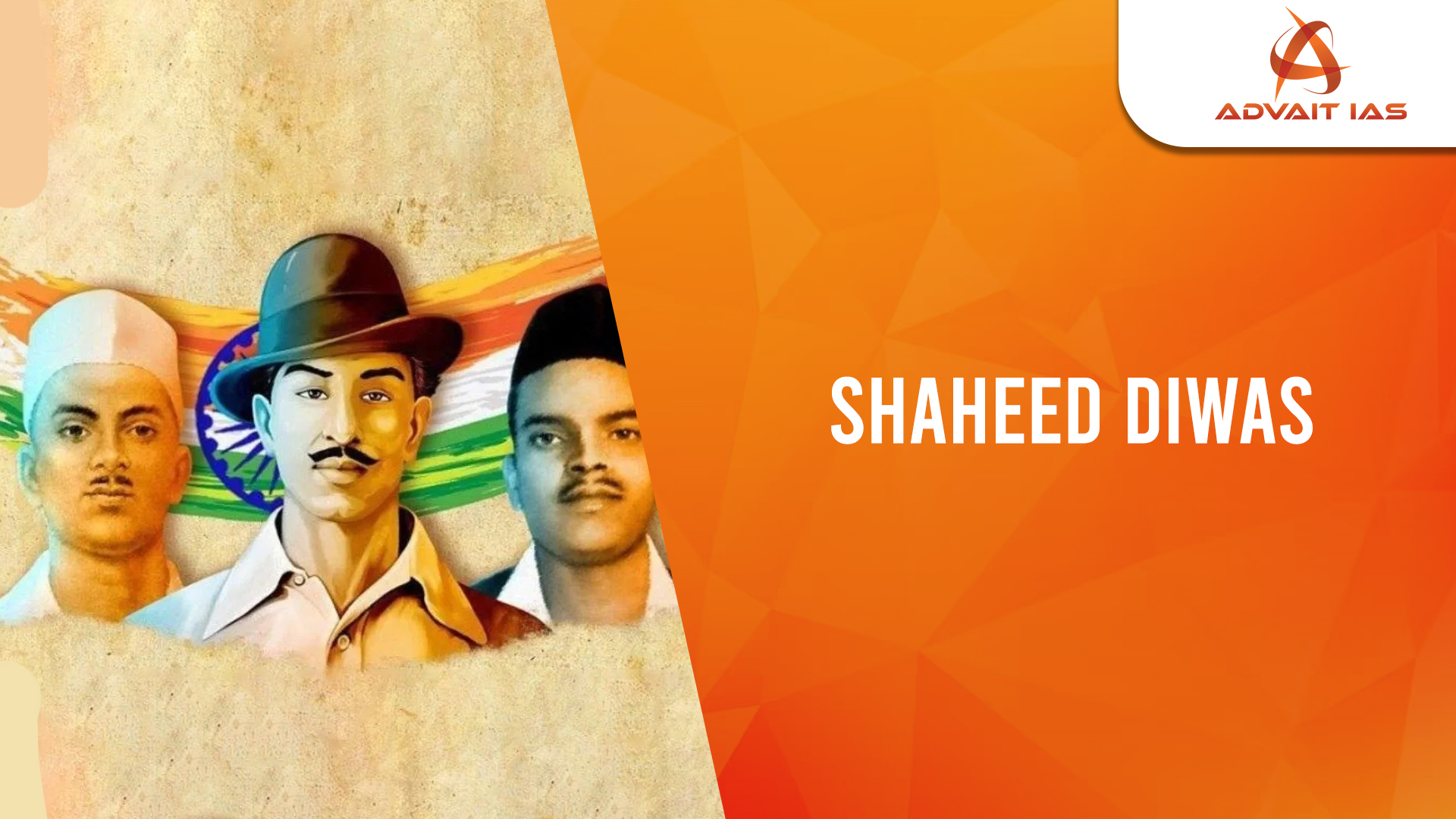On 23rd March, Prime Minister Narendra Modi paid tribute to iconic freedom fighters Bhagat Singh, Rajguru, and Sukhdev.
- This day marks their execution by British colonial authorities in Lahore Jail (1931).
- Event: Execution of Bhagat Singh, Rajguru, and Sukhdev by the British for their roles in the Lahore Conspiracy Case.
- Significance: Commemorates the supreme sacrifice of these revolutionaries in the fight for India’s independence.
The Lahore Conspiracy Case (1928):
- Involved the killing of British officer J.P. Saunders, mistakenly identified as Superintendent James Scott.
- James Scott was responsible for the death of Lala Lajpat Rai during a protest against the Simon Commission.
- The Hindustan Socialist Republican Association (HSRA) led the revolutionary activities against British rule.
Profiles of the Martyrs:
- Bhagat Singh (1907–1931):
- Symbol of revolutionary nationalism and youth activism.
- Advocated for armed resistance against British colonialism.
- Famous for the “Inquilab Zindabad” slogan and his powerful writings.
- Rajguru (1908–1931):
- Born in Maharashtra, known for his unwavering resolve against colonial oppression.
- Played a key role in the assassination of J.P. Saunders.
- Sukhdev Thapar (1907–1931):
- Born in Punjab, a key figure in mobilizing youth for the freedom struggle.
- Worked closely with Bhagat Singh and Rajguru in the HSRA.
Legacy and Relevance:
- Shaheed Diwas serves as a reminder of the sacrifices made by freedom fighters for India’s independence.
- It inspires patriotic fervor and reflects the spirit of resistance and resilience in the face of oppression.
- Prime Minister’s tribute highlights the continued relevance of their ideals in contemporary India.






